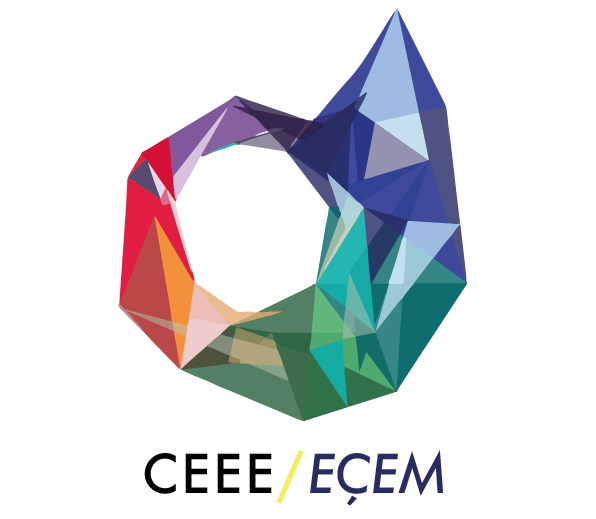CEEE has worked on several interdisciplinary and transdisciplinary initiatives since the Zero Istanbul 2050 Workshop held on 25 May 2010. This Workshop (as explained before) emphasized that all social and technological studies and invest ments to be made in Istanbul should have the goal protect the spirit of Istanbul. A year later, in the Integrated Architecture and Engineering Workshop held in 2011, it was emphasized that architects and engineers should be educated and work toget her as a team. They needed to add the human fa ctor to all their studies, design and modernization steps, indicating the very first transdisciplinary con cepts emphasized by CEEE and Özyeğin University. These problems actually do not have easy soluti ons. That is the reason why we call them compli cated, complex or ‘wicked’ problems. It is not pos sible to describe in simple terms with mathematical equations, but it is necessary to develop and adapt possible strategies to mitigate their negative impa cts. Of course, the most important of these ‘wicked’ problems is the climate crisis. In order to reduce the destructive effects of the climate crisis, we need to work on energy efficiency in buildings, the layout of cities, and other innovative studies by addres sing the human factor.
We approach these large and complex problems scientifically and with the teams of engineering and architecture students. In addition, we have always emphasized that behavioral scienceas they should be included in these studies in order to impact the people and society. In this context, we have closely worked with two undergraduate students organi zations who established Interdisciplinary Thought Group and the Transdisciplinary Studies group. The Transdisciplinary Student group was jointly led by Selenga Gürmen, a faculty member of the Psychology Department of Özyeğin University.
This group has eventually evolved to an important independent entity in the University. Since 2012, many of CEEE students have worked on the human factor in their studies and helped prepare the necessary scientific background for transdisciplinary studies. The necessity for especi ally thermal and visual comfort to be scientifically explored for buildings is emphasized in these stu dies. Theses completed by CEEE graduate students Güven Fidan, Ruşen Acet, Doğa Gizem Memiş, Ebru Tatar, Elif Gizem Tuncel and Ali Can Yelekci and the studies of Nil Kutlar created important scientific documents on these issues. Cem Keskin, who completed his PhD at the Center has studies humanbuilding interactions. Two other PhD stu dents, Gökçe Ersel Ötkün and Irem Kurtuluş have emphasized the importance of the human factor in engineering, architecture and urban planning efforts.
Managing thermal comfort of the occupants in bu ildings based on their preferences was highlighted in Cem Keskin’s doctoral dissertation. Keskin and Mengüç’s scientific papers published in journal Sustainability in 2018 and in ASME Journal of Heat Transfer in 2020 illustrate how innovation proces ses focused on human behavior can help to enhan ce both comfort and energy efficiency. Achieving the greatest benefit from digitalization, which is the backbone of these solutions and is rapidly pe netrating modern buildings, is only possible with transdisciplinary approaches that can bring tech nical and social expertise together. CEEE’s work in this area continues in a way that includes the deve lopment of original modeling and data processing methods.
The other two PhD students who contributed to CEEE studies have actually architectural ba ckgrounds. Gökçe Ersel Ötkün working on her PhD in Özyeğin University’s Design, Society, Technology Program with M. Pınar Mengüç and Alpay Er as coadvisors. She aims to develop a new design model/methodology by using a transdisciplinary approach to insolvable, multilayered problems re garding businesses and cities. She plans to iden tify current problems and existing approaches by addressing sustainable cities more comprehensi vely, beyond the usual social, ecological or economic dimensions. Considering today’s unforgiving cycles of urban problems, development of sustainable solutions cannot be possible with traditional methods. Cities are like living organisms, and they are in continual transformation. They involve many submechanisms and stakeholders from different disciplines need to work together to make a dif ference to the operation of hese complex system. However, there is a need for creative approaches that eliminate the boundaries of these disciplines, that need to be collaborative and comprehensive. These approaches should aim for a sociotechnical transformation along the process. Gökçe’s study, which is based on innovative strategies regarding cities with a new and disruptive design methodo logy, is an example of the development of new ideas for future strategies.
On the other hand, Irem Kurtuluş who is working on her PhD in the City Planning Department of Istanbul Technical University with Ayşe Sema Kubat and M. Pınar Mengüç as coadvisers. She focus ses on analyzing the cultural codes of cities and creating more livable smart cities.Her study aims to create decisionoriented wise cities in the light of developing technologies by ensuring the prote ction of these ground features.
Another target of her study is to extract the codes of abstract and concrete relations that constitute the unique values of the place and to create a model based on en suring the sustainability of the economic, ecologi cal and social structure. With a model designed in this direction, it will be possible to create cities that have strong pieces in terms of culture, ecological, economic and social aspects and to strengthen the whole, in line with the decisions taken with versatile and comprehensive approaches. Another PhD student, Canan Özsoy, plans to fo cus on the concept of ‘Energy Transition’ for Turkey and beyond. She has recently joined to CEEE, and will work on her PhD in Özyeğin University’s Design, Society, Technology Program with M. Pınar Mengüç. By definition, her work is interdisciplinary in natüre.
Last, we have to mention the contibution of CEEE to the educational activities to make interdiscipli nary and transdisciplinary concepts widespread. In addition to the CEE211 course we mentioned above, which received an IBM award, we had two more courses. M. Pinar Mengüç taught the ME 373 Teknoloji and Society course from 2012 to 2017 to engineering students. The third course, ME 409 509 (Sustainable Energy, Materials and Systems) was taught in 2017, where CEEE’s integrated en gineeringarchitecture concepts were transferred to students from many disciplines. This course was conducted with the support of İMSAD (Türkiye İnşaat Malzemeleri ve Sanayicileri Derneği; Turkish Association for Construction Materials and Industries). Several professionals from different companies presented lectures. The support we re ceived from Aygen Erkal, Fuçin Ermurat (of IMSAD) and Özlem Bahadır (CEEE) have been crucial for the success of this course.
“
Nature must be experienced through feelings. Those who want to describe the world by simply classifying plants, animals and rocks will never get close to it.
Alexander von Humboldt’s letter to
Johann Wolfgang Goethe
(1790’s)



